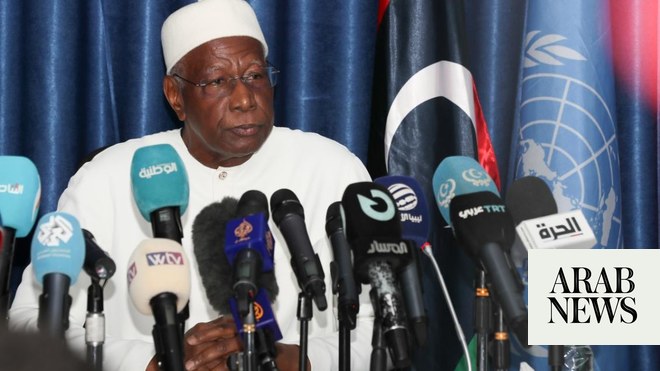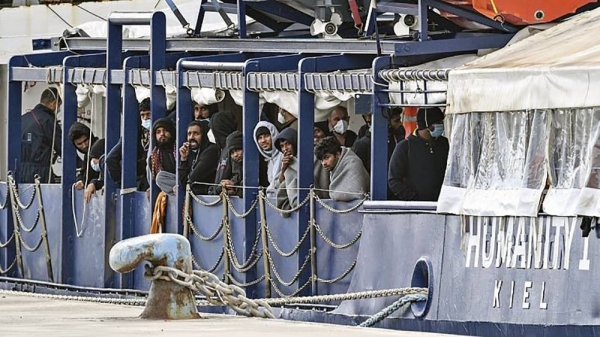
A senior delegation from Turkey paid an official visit to the Libyan capital Tripoli this month. The delegation was composed of Foreign Minister Mevlut Cavusoglu, Defense Minister Hulusi Akar, Minister of Energy and Natural Resources Fatih Donmez, Trade Minister Mehmet Mus, head of the presidential communications department Fahrettin Altun and presidential spokesman Ibrahim Kalin.
They negotiated and signed a memorandum of understanding in the field of hydrocarbons with a Libyan delegation headed by Foreign Minister Najla Mangoush. Libyan Prime Minister Abdul Hamid Dbeibeh attended the signing ceremony. A group of countries, including France, Greece, the US and Germany, immediately reacted against the memorandum, claiming that it violated international law, without specifying which specific disposition of international law was violated.
Turkey reacted by pointing out that third countries have no right to interfere in an agreement signed by two sovereign countries. What prompted the reaction of these countries was probably Cavusoglu’s statement that there were many drafts to be completed in several areas that reflect the level of cooperation between Turkey and Libya.
The countries opposed to Turkey’s signing of a memorandum of understanding have claimed in the past that any international agreement signed by the Tripoli-based Government of National Accord had to be ratified by the Tobruk-based House of Representatives. However, there has been an important change in the attitude of House of Representatives Speaker Aguila Saleh. Before a visit that he paid to Ankara in August, he told the media that “politics are flexible and subject to development and change. There is no permanent rivalry. The interests of Turks are linked to our interests.”
The situation in Libya continues to be fluid. New realities may cause new changes in the attitude of the decision-makers but, as things stand, the House of Representatives is in favor of ratifying the memorandums of understanding that were signed with Turkey in 2019, as well as the one that was signed two weeks ago.
If Turkey plays the game properly, it may capitalize on this opportunity because it supports Libya’s UN-recognized government
Yasar Yakis
Greece, the US, France and Germany have now turned to another justification. This time, they claim that Dbeibeh’s term as prime minister came to an end on Dec. 24, 2021. Therefore, he has no authority to sign an agreement with a foreign country. It looks as if this blame game will continue until a Libyan government recognized by the international community is established.
The present controversy is focused on a contradicting claim: Dbeibeh claims that the elections that were scheduled to take place in December last year could not be held for a plethora of reasons; therefore, he continues to serve as prime minister until elections are held and Libya’s constitutional crisis is brought to an end. The House of Representatives, believing that Dbeibeh’s term has come to an end, has elected a new prime minister, Fathi Bashagha, who was interior minister in Dbeibeh’s government.
During tumultuous periods, political figures may change sides or form coalitions with their former opponents. This is more or less what is happening in Libya. Turkey has the advantage of maintaining good relations with both Dbeibeh and Bashagha. Furthermore, as Bashagha’s name suggests (meaning “chief lord” in Turkish), he has Turkish origins. Therefore, if Turkey plays the game properly, it may capitalize on this opportunity because it supports Libya’s UN-recognized government. It has signed three memorandums of understanding with this government. Ankara has duly notified two of the memorandums with the UN secretary-general’s office and it has more legitimate stakes in Libya than France, the US and Germany.
We will see in the later stages whether Turkey’s legitimate rights will be recognized by the international community. The preliminary signs indicate that, because of Turkey’s isolation in the international arena, the above-mentioned countries will do everything in their power to ignore Turkey’s rights. Ankara’s refusal to participate in the NATO sanctions on Russia is an additional reason why, in gray areas, the transatlantic community will stand against it.
After Turkey signed the memorandum of understanding in the field of hydrocarbons with the Tripoli-based government, Greek Foreign Minister Nikos Dendias rushed to Cairo to persuade Egypt to support the Greek position.
There is a legendary wise man in the Arab world called Joha, who solves complicated problems in the easiest of ways. A joke of Joha says that two men were disputing an issue. Joha listened to the first man and eventually told him that he was right. He then listened to the second man and told him he was also right. Joha’s wife, who was listening to the conversation, intervened and told Joha: “You have told the first man that he was right. Now you tell the second that he is also right. What type of judgment is this?” Then Joha turns to his wife and tells her: “You are right too.” The Libyan constitutional crisis also looks a little like all three sides are right.











